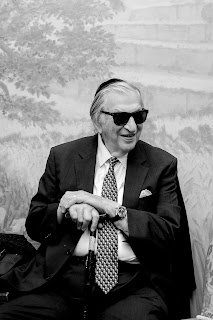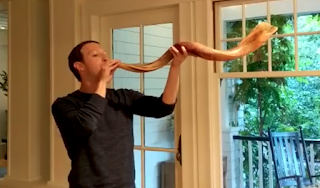There are photographs
everywhere. Children, grandchildren, and great-grandchildren;
pictures of
Ricky, his wife, and my aunt, who died six months ago. They line the kitchen walls, living room, and
den. They are taped to the back of furniture
so he can see them from the lounge chair. Photos of grandchildren and
great-grandchildren shuttle across two electric photo displays.
Ensconced, or perhaps engulfed in
a motorized lounger he sleeps often. A push of a button and the chair reclines
to a full sleeping position. It is in this position that he often spends his
nights. He moves infrequently – once or twice a day to eat at the nearby dining
room table – although, meals are often eaten on his lap in the chair. Two or
three times a day an arduous trip to the bathroom is required. He moves unsteadily clutching a walker and the
home care nurse and I guide him as he goes. The danger of falling is quite real,
perhaps even fatal. He struggles to retain his balance, so fearful – even with
my constant reassurance “I will not let you fall. I will not let you
fall”. But who can truly offer full
assurance of safety to another?
The house, that I visited first
as a teenager more than a half-century ago is still beautiful but shows signs
of wear. A kitchen cabinet door falls
off at the hinges. The kitchen and bathroom faucets drip incessantly. A recessed fluorescent light fixture is
missing in the den. Perhaps they are all metaphors for the man that sits for
hours in the living room chair. Still beautiful but showing his age.
The Sabbath begins seven hours
earlier in Israel where three generations of Fensters live. Thus, beginning at
11 am on Friday morning, the phone rings almost non-stop. “Hello Zayde”, Good Shabbas Zayde”. His eyes
come alive, and his voice lifts up with joy as he greets his beloved and loving
family members from near and far. “Hello beautiful, how are things in
Jerusalem”. “Zak, wonderful to hear from
you, what’s the Parsha (the weekly Torah portion)? A long-distance biblical exegesis ensues. His
memory of Jewish texts and verses is extraordinary.
He shares with me his most
recent writing; “The Blessings of Covid-19”. Its core message – we are impelled
to be aware of the holiness of each moment and the sacredness of relationships.
We study Jewish texts together. We begin
with this text from the Talmud (Berakhot 17a)
When Rabbi Yoḥanan would conclude study of
the book of Job, he said the following:
A person will ultimately die and an animal will
ultimately be slaughtered, and all are destined for death. Therefore, death
itself is not a cause for great anguish.
Rather, happy is he who grew up in Torah, whose labor is
in Torah,
who gives pleasure to his
Creator, who grew up with a good name, and who took leave of the world with a
good name.
His mind is on death. Ever since the passing of Aunt Ricky after 70
years of marriage, it is his constant companion. Perhaps it has always been. In his own words,
from a recent essay “Sometimes I felt that the “angel
of death” was chasing me throughout my life”.
This became eminently clear to
me the day his son, my cousin Jonathan, was buried days after a massive heart
attack. In a cemetery in Elmont Queens,
in the shadow of Belmont Racetrack, I watched as his body was laid to rest next
to Uncle Myron’s parents and his brother Elliot, who died of encephalitis at
age 11. Elliot’s death was an
exponential amplifier of the trauma and sense of loss and powerlessness engendered
by his coming of age during the Holocaust. “He died in one day, and my
sister Eleanor and I and my parents were totally unprepared. I don’t
want to sound dramatic, but both Eleanor (his sister) and I have discussed
whether we ever really got over it.
It was in the spiritual world
where he found solace, or more precisely, solace in the search for
meaning. Judaism, its writings, and its
teaching offered to fill that void between a world that makes sense and one
where sense is impossible. We cannot phantom pain, illness, death, and the loss
of a loved one can never be comprehended. It is in our search for meaning in
which each of us can imbue life with meaning and purpose. From another recent essay of his: “You may not find an “answer, but you will
be comforted to know your question is real, authentic and Biblical.”
Thus, the Book of Job became Uncle Myron’s life travel guide and his
constant companion. The death of Job’s ten children, the loss of all his
belongings, and his infliction by a painful and disfiguring disease, are
depicted as no more than a cruel bet between God and Satan. How else might one make sense of tragedy?
God’s answer, “You don’t”
Then the LORD replied to Job out of the tempest and said:
Where were you when I laid the earth’s foundations?
Speak if you have understanding׃
Do you know who fixed its dimensions
Or who
measured it with a line? (Job 28 4-5)
Would
you impugn My justice?
Would you condemn Me that you may be right? (Job 40:8)
In the end, God restores Job’s wealth
and favors him with seven sons and three daughters.
“Thus the LORD blessed the latter years of Job’s life more
than the former.” (Job 42:12)
Afterward, Job lived one
hundred and forty years to see four generations of sons and grandsons. (Job
42:16)
Uncle Myron is not quite 140
years old, but he has seen four generations of children, grandchildren, and
great-grandchildren. Thus, the hundreds
of photographs everywhere. The Lord has blessed the latter years of his life.

Uncle Myron lives in full
awareness that his death nears. In our conversations, he questions whether he
has truly made a difference in the lives of others. I speak to him of the
thousands of men, women, children, and families who have learned from him and
loved him. Of the thousands of Bar and
Bat Mitzvahs, weddings, brises, and baby-namings. He scoffs at this, and he questions the
lasting impact he has made. My answer is simple. “You held me on your lap
during my bris, blessed me on my Bar Mitzvah, cried with me when we buried my
father, married my wife and me, and chanted a prayer at my daughter’s wedding. You
have been with me at every liminal moment in my life and then some. I have
learned from you every day and continue
to do so. If you question everything else, know the truly profound
impact you have had on my life.”
Happy is he who grew up in Torah, whose labor is in
Torah,
who gives pleasure to his
Creator, who grew up with a good name, and who took leave of the world with a
good name.
Uncle Myron, Rabbi Myron M. Fenster, passed away on Thursday, September 1, 2022, at the age of 95.










